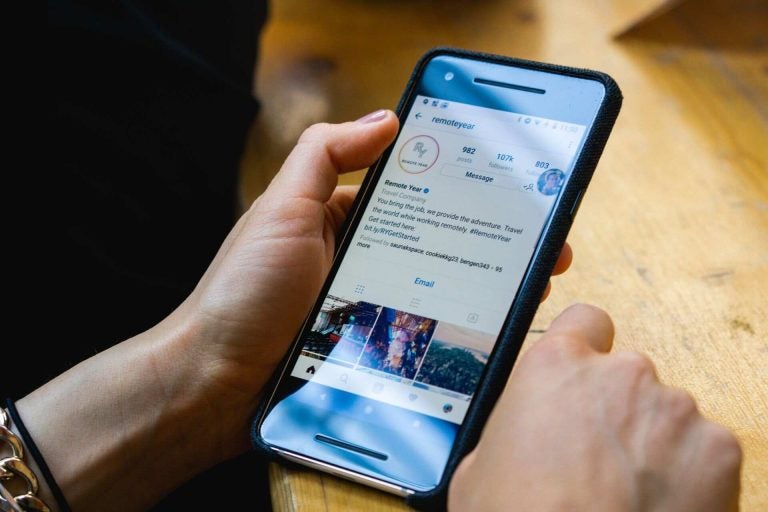Best pocket WiFi for France: Which one should you choose?
If you want to stay connected during your trip to France, there are currently many alternatives, including the pocket WIFi for France.
Pocket WiFi devices offer one of the most popular ways to stay connected while traveling. It’s essentially a mobile hotspot that you can take with you everywhere you go. And while you can purchase these devices, pocket WiFi rent is the most common way of using them.
When traveling to France, there are plenty of rental services for you to choose from, so picking one isn’t always easy. You need an entirely different option if you’re traveling alone to Paris than when you are on a family road trip through France. Follow along to learn more about the best pocket WiFi options for France, as well as travel eSIM and other alternatives.
What is pocket Wifi?
Pocket WiFi, also known as portable WiFi, is a portable battery-powered router that creates a WiFi network that you can use to connect your devices. It typically uses a SIM card or an eSIM with mobile data, to turn this data into a WiFi signal.
At its core, pocket WiFi is very similar to the WiFi router you have at home. The only real differences are that it doesn’t need to be constantly plugged into a data source and that it uses mobile internet instead of an ethernet cable. This allows you to connect multiple devices while on the go and use your phone in France.
The pocket WiFi devices themselves don’t have internet embedded inside them, so they need to be linked to a data plan. However, when renting such devices, they usually come ready to use with a fixed or unlimited data plan.

What’s the best pocket WiFi for France?
With multiple pocket WiFi options in France, you’ll need to consider a few things when choosing your provider. On top of the rent costs, you’ll need to consider things like delivery fees, late fees, additional rental options, and the potential costs if you lose or damage your device.
Let’s take a closer look at the top pocket WiFi rentals for France, complete with all the information you should know about before making your choice.
My Webspot
My Webspot is local to France, with its main offices located in Paris. Unlike other providers on this list, My Webspot now sells the device outright rather than renting it, starting at €79.00 (~$83 USD). The purchase includes 3 free days of data, with options to add 5, 10, or 20 additional days.
The device connects up to 5 devices simultaneously, comes with a 2-year warranty, and is delivered within 48 hours. Since My Webspot is based in France, delivery within the country is quick and convenient. The device also works in over 130 other countries, making it a good option for frequent travelers who plan to reuse it across multiple trips.
TravelWiFi
TravelWiFi is a European provider with several pocket WiFi France plans and the option for physical pick-up in several locations around France.
Their France pocket WiFi hotspot rental starts from $6.95/day, with flexible data options including unlimited data plans. Rental devices support 4G LTE speeds and connect up to 5 devices simultaneously.
The shipping prices vary depending on where you need the device to be delivered, but they’re usually within the $10 to $35 range. If you can pick up and return the device at one of their physical locations, you won’t have to pay any delivery fees.
If you lose or damage the device, you’ll be asked to pay a $150 fee, so make sure to take good care of the pocket WiFi throughout your rental period.
Cello Mobile
While by far the most expensive option on the list, Cello Mobile is a viable pocket WiFi option for France. It is most commonly used by those traveling from the US or Canada. The rental service costs $49.99 per day ($349.93 per week) and includes the device itself, unlimited internet, travel adapters, a wall charger, and even a fanny pack to carry the device in.
In addition to what’s already included in the package, you can rent a car charger and a power bank for an additional fee. You can also buy insurance to protect yourself in case you damage or lose the device.
Without insurance, you will be penalized $75 if you fail to return the device in good condition. Since there are no local pick-up points in France, you’ll need to pay for delivery. However, delivery to Europe costs $75, so if you live in North America consider getting the device delivered to your house before your trip, which will cost around $15-25.
Hippocket WiFi
Hippocket WiFi is yet another pocket WiFi provider based in France, and its good selection of 4G and 5G plans make it one of the best options for this European country.
First of all, most other providers don’t even offer 5G, so having that option is nice, even if it does cost a premium. Overall, the rental price is quite affordable, with daily costs starting from €3.95 (~$4.15 USD) depending on the duration of your plan and how much data you need. For example, a 7-day plan with 1 GB per day starts at €41.65 (~$44 USD).
The cheapest plans are limited to 1 GB a day at 4G, and the medium plan offers unlimited internet at 4G, with the most expensive plans including unlimited internet with a 5G connection.
While there are no physical pick-up points, standard delivery to France is free. All you need to do is order the device at least three working days before you’ll actually need it to give time for the device to arrive.
If you need faster delivery or need the device delivered outside of Europe, the delivery fees can range from $11 to $22, depending on which option you choose. Finally, if you lose one of the devices, you will have to pay a penalty of $170 to compensate the company for the damages.
Pocket Wifi alternatives
While Pocket WiFi is still a popular way to stay connected when traveling, it doesn’t mean that it’s the best option available. So before you rent out a portable WiFi router, let’s take a look at some of the best options for mobile internet in France that you should consider.
eSIM for France
eSIM cards are quickly becoming the top option for travelers looking to have an internet connection on the go. That’s largely because it offers a cheaper and more convenient way to stay connected while still maintaining a quality service.
A big advantage of eSIM technology is that it doesn’t require any physical devices or cards. All you need is an eSIM-compatible phone, which shouldn’t be an issue since most modern phones work with eSIM technology nowadays.
You can buy an eSIM for France online, and you’ll receive a QR code for activation right after your purchase. The whole process only takes a couple of minutes, and you don’t even need to get up from the couch to do it.
The Holafly eSIM for France offers unlimited data and up to 1,024 MB of data sharing daily. This allows you to turn your phone into a mobile hotspot and share bandwidth with other devices while enjoying a lightning-fast connection.
The easiest way to stay online while you travel long-term in France
If you’re extending your stay in France, Holafly Plans offers a reliable monthly data plan with great coverage for frequent travelers or anyone needing seamless connectivity in France and worldwide.
Holafly Plans suits travelers who:
- Are arriving in a new place but don’t have an address or bank account yet
- Need consistent, fast internet to work immediately
- Want one subscription that works across multiple countries
- Need an unlimited hotspot to connect laptops, tablets, etc.
- Don’t want the hassle of dealing with local internet providers
- Need instant access to customer support at all times.
Choose from the Unlimited Plan ($64.90/month) with unlimited data and hotspot, or the Light Plan ($49.90/month) with 25 GB of data and hotspot access. Visit Holafly Plans to get started and enjoy hassle-free internet in minutes!
Travel SIM cards
If you don’t have an eSIM-compatible device, buying a France SIM card is another great option to consider. Most airports have stands that sell travel SIMs with prepaid data plans. And even if you can’t find one at the airport, you’ll be able to do so in a vast majority of cities.
Much like pocket WiFi, travel SIMs can also be ordered online and delivered to your door. However, it’s often faster, cheaper, and more convenient to buy them on location. It’s not as fast as setting up an eSIM since you have to buy a physical card, but it’s also faster than waiting for a router delivery.
One slight downside to travel SIMs is that they take up the physical SIM slot on your phone. So, if you don’t have a double SIM phone, you won’t be able to use your regular card at the same time.
This means that you might not be able to access WhatsApp or any other apps linked to your regular number, nor will you be able to receive calls to that number in case of an emergency. Other than that, travel SIMs tend to be cheaper and easier to get than pocket WiFi devices.
Free public WiFi
If you just need to briefly connect to the internet without having constant access wherever you go, using public WiFi allows you to do just that without any costs attached to it. Most airports, hotels, and restaurants have WiFi, so you can connect and enjoy internet access there.
However, public WiFi won’t always be available, and you may need to access things like maps or translator apps on the go. So unless you’re absolutely sure that you won’t be needing internet, consider using the public WiFi to buy and set up and eSIM instead. That way, you’ll be able to stay connected wherever you go.
Is pocket WiFi the best way to stay connected in France?
Pocket WiFi is a good option if you want to avoid international roaming charges, but it’s only the best choice if you absolutely must keep multiple devices connected to the same network at the same time.
Alternatives such as eSIM or travel SIM cards also provide you with internet access, but you don’t need to worry about things like router battery life, damaging the rental device, or shipping charges when using them.
If you want a completely digital, affordable, and convenient internet connection option, using an eSIM is your best bet.
Heading to France? These Pocket WiFi guides for other European destinations can help you prepare.
FAQs
If you’re looking for a budget-friendly solution for staying connected in Paris, pocket WiFi isn’t your best option. Travel SIM cards and eSIMs are both cheaper and more convenient than pocket WiFi.
Some pocket WiFi providers can send their devices to airport pickup points. That said, you may still need to order the rental in advance to make sure that it’s ready for you by the time you arrive.





 Language
Language 


















 No results found
No results found














